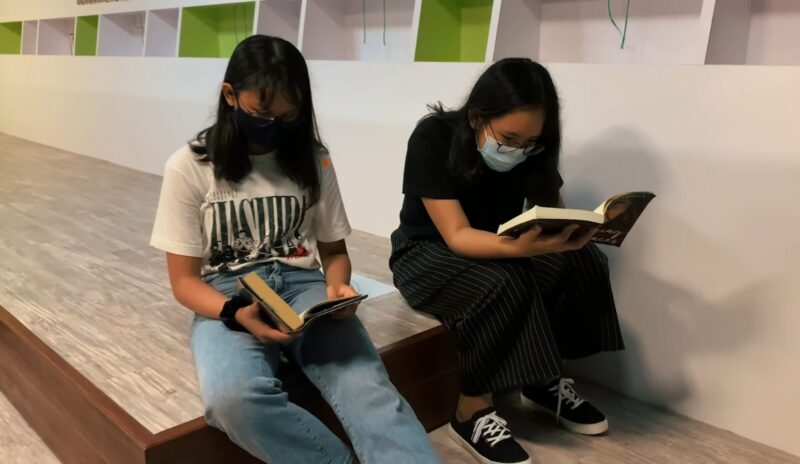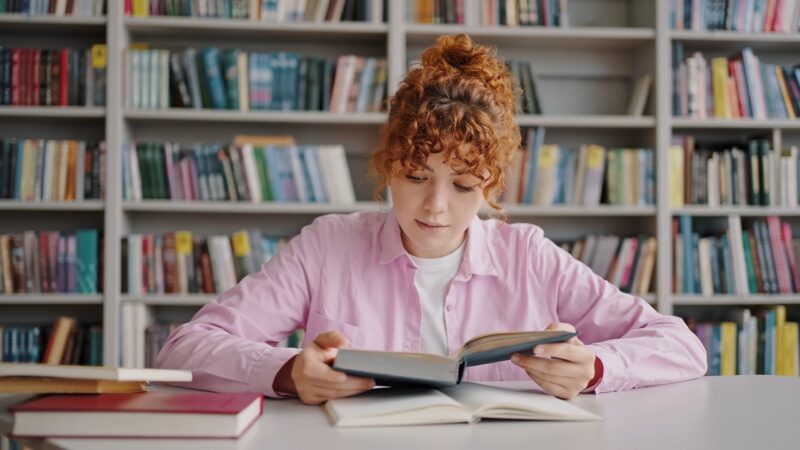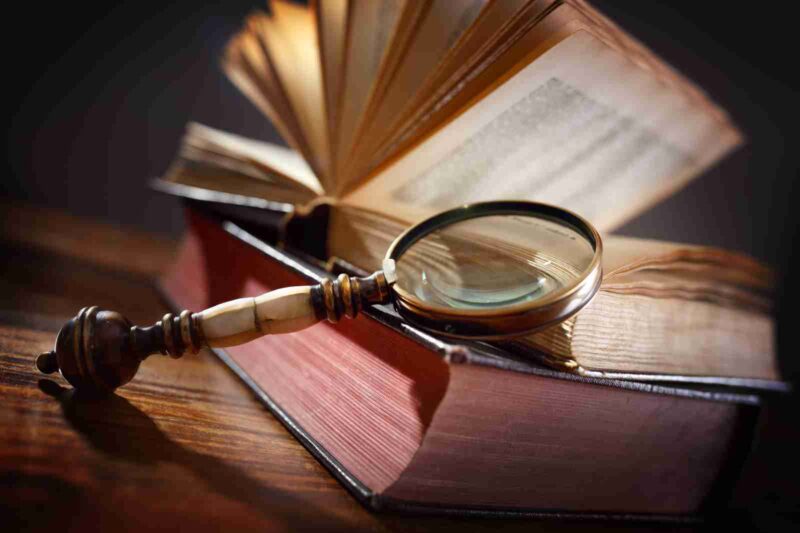Critical reading is an essential skill in an age where information is abundant and varied.
It involves a more active approach to reading, one that goes beyond mere comprehension.
When we read critically, we engage with the text in a way that allows us to understand not just what is said but how and why it’s said.
This process includes evaluating the strength of the arguments presented, understanding the context, and recognizing any biases or underlying assumptions.
Today, I will explore the concept of critical reading, its importance, and how it can be practiced effectively.
Key highlights:
- Definition and Importance of Critical Reading: Knowing critical reading as an active, analytical approach to understanding texts is essential for informed decision-making and personal growth.
- Strategies for Effectiveness: Learning techniques like inferring, claim analysis, journaling, and understanding context to enhance critical reading skills.
- Role of Humility: Recognizing the importance of humility in questioning our own biases and assumptions for a deeper understanding of texts.
- Impact: Discovering how critical reading changes our perspectives, enhances our reasoning skills, and helps uncover truth.
- Challenges and Considerations: Identifying challenges like overcoming biases and dealing with complex materials, and finding balance in the critical reading process.
Essentials You Need to Know

At its core, critical reading is about developing a deep understanding of a text. It’s a process that requires attentive and thoughtful reading.
Critical readers look at the structure of the text, its purpose, and its intended audience.
They ask questions about the author’s intentions, the construction of arguments, and the meanings of words and phrases.
The Process of Critical Reading
Critical reading is not a passive activity. It involves active engagement with the text. This process includes:
- Examining Implicit and Explicit Themes: Understanding both the obvious and the subtle messages in the text.
- Assessing Text Structure: Analyzing how the text is organized and how this structure supports or undermines the author’s purpose.
- Considering Context: Recognizing the historical, cultural, or social context in which the text was written and how it affects interpretation.
- Questioning and Analyzing: Asking questions about the author’s purpose, evidence, and logic. This also involves identifying any biases or assumptions.
Why Critical Reading Matters
Critical reading is essential for several reasons:
- Informed Decision-Making: It allows readers to assess information critically, leading to better decision-making in both academic and real-world contexts.
- Understanding Complexity: Critical reading helps in understanding complex issues by breaking down arguments and evaluating their strengths and weaknesses.
- Avoiding Misinformation: In an era of information overload, it’s crucial to distinguish between fact and opinion, and identify biases and false claims.
- Personal Growth: It enhances one’s knowledge and critical thinking skills, contributing to intellectual and personal growth.
Strategies for Effective Critical Reading
To practice critical reading effectively, one can employ various strategies. These include:
Inferring and Interpreting

Inferring involves reading between the lines to understand what the author implies but does not explicitly state.
Interpretation goes a step further, requiring the reader to draw conclusions based on both the explicit content and inferred meanings.
Claim and Counter-Claim Analysis
This involves examining the arguments presented in the text and considering opposing viewpoints.
It helps in understanding the strength of the author’s position and in recognizing any one-sided arguments.
Journaling and Note-Taking

Keeping a journal or taking notes while reading can help in organizing thoughts and questions about the text.
This practice aids in deeper analysis and reflection.
Marking the Text

Highlighting, underlining, or annotating the text can make critical reading more interactive.
It helps in identifying key points, questions, and areas for further investigation.
Contextual Analysis
Understanding the context in which a text was written is crucial.
This includes considering the historical, cultural, or social background that might influence the text’s content and the author’s perspective.
The Role of Humility in Critical Reading
Humility plays a significant role in critical reading. It’s about recognizing that our understanding and interpretations can be flawed.
Humility allows us to question our own biases and assumptions, leading to a more open and honest engagement with the text.
The Impact
Critical reading doesn’t just change how we read; it changes how we think. It opens up new ways of understanding the world and our place in it, just like how the wisdom of educators shapes our learning journey, encouraging us to question, to seek out truth, and to be open to new ideas and perspectives.
- Changing Perspectives: As we read and acquire knowledge, our perspectives evolve. Critical reading is a key component in this process of intellectual growth and development.
- Forming Rational Arguments: By engaging with texts critically, we learn to form our rational arguments. This skill is essential in academic writing, professional communication, and personal interactions.
- Uncovering Truth: Ultimately, critical reading aims to uncover the truth. It’s about getting to the heart of what the author is saying and evaluating the validity of their arguments and evidence.
Advancing Skills
To become proficient in critical reading, one must consciously adopt and refine various strategies. These include:
Engaging with Diverse Texts

Exposure to a wide range of texts, genres, and perspectives is crucial.
Reading diverse materials exposes us to different viewpoints, writing styles, and arguments, which sharpens our ability to critically analyze texts.
Regular Practice
Like any skill, critical reading improves with regular practice. Making a habit of reading and analyzing texts critically helps solidify the techniques and approaches involved.
Discussion and Collaboration
Engaging in discussions about texts with others can enhance understanding and perspective.
Group discussions or study groups offer opportunities to hear different interpretations and to refine one’s analytical skills.
Seeking Feedback
Receiving feedback on one’s interpretations and analyses of texts can provide valuable insights.
Whether from teachers, peers, or mentors, feedback helps identify areas for improvement and deepens understanding.
Continuous Learning

Critical reading is closely tied to continuous learning. Attending workshops, taking courses, or reading about critical reading strategies can provide new tools and perspectives to enhance one’s skills.
The Impact of Understanding
The impact of critical reading extends far beyond the immediate process of analyzing a text. It influences how we understand and interact with the world.
- Enhancing Intellectual Curiosity: Critical reading fosters intellectual curiosity. By constantly questioning and seeking deeper understanding, we become more inquisitive and open-minded.
- Building Empathy and Understanding: By considering various perspectives and contexts, critical reading can build empathy. Understanding the diverse viewpoints and experiences presented in texts helps us appreciate the complexities of human experiences.
- Influencing Decision-Making: The skills gained through critical reading, such as analysis, evaluation, and synthesis, are directly applicable to decision-making in various aspects of life. This skill set enables us to weigh options more carefully and make more informed choices.
- Nurturing Informed Citizenship: Critical reading contributes to informed citizenship. It equips us with the ability to engage with societal issues critically, understand different viewpoints, and participate in democratic processes more effectively.
FAQs
Can critical reading skills be useful in everyday life outside of academic settings?
Absolutely. These skills help in everyday decision-making, understanding news articles, and engaging with social media content critically.
They enhance our ability to discern fact from opinion and recognize biased information.
How does critical reading differ from speed reading?
Speed reading focuses on absorbing information quickly, often at the cost of depth and understanding.
In contrast, critical reading involves a slower, more deliberate process that emphasizes understanding, analyzing, and questioning the text.
Is critical reading applicable to non-textual media like videos or podcasts?
Yes, critical reading principles can be applied to other media forms.
It involves critically analyzing the content, understanding the creator’s perspective, and evaluating the arguments and evidence presented, regardless of the medium.
Can critical reading help with creative writing?
Certainly. It can inspire new ideas, enhance understanding of different writing styles, and improve one’s ability to construct well-rounded arguments and narratives in creative writing.
How can I improve my critical reading if I find it difficult to concentrate on lengthy texts?
Start with shorter texts, gradually increasing their length as you become more comfortable.
Use techniques like note-taking or summarizing to engage more actively with the text. Breaking reading sessions into smaller, manageable segments can also help.
Is there a way to measure improvement in critical reading skills?
Improvement can be gauged through self-reflection on how well you understand and analyze texts over time.
Engaging in discussions or writing analyses and comparing them to previous efforts can also be a good indicator of progress.
Final Words
Critical reading is a skill that goes beyond mere comprehension. It involves a deep engagement with the text, where we question, analyze, and synthesize the information presented.
This skill is essential for success in both academic and real-life settings. It enables us to make informed decisions, understand complex issues, avoid misinformation, and grow intellectually and personally.
Practicing critical reading equips us with the tools to navigate an increasingly complex world and to seek out truth in the midst of a sea of information.
